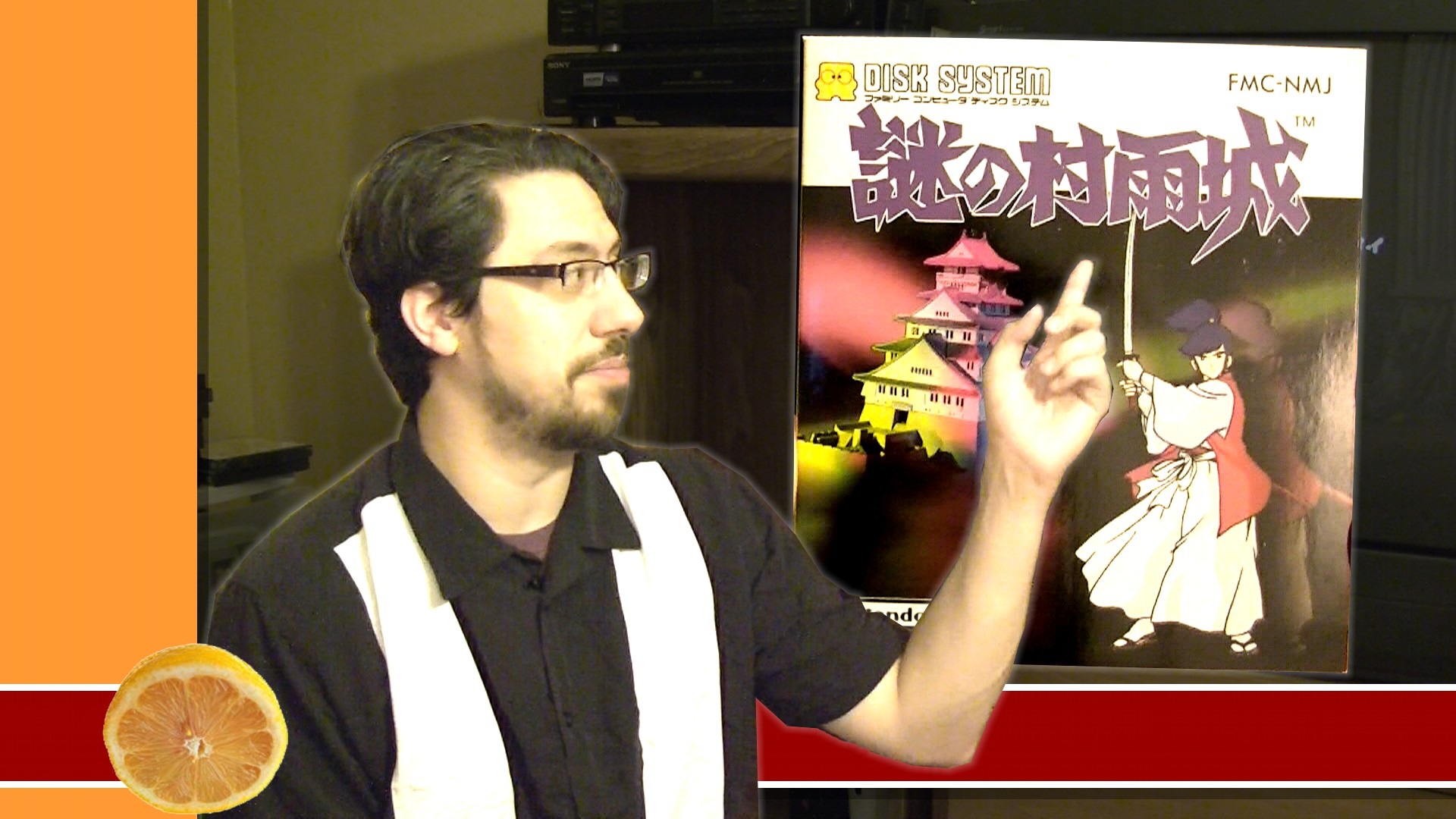“In Time” presents an appealing “Mother, Daughter, Grandmother” scenario
by Adam, filed in Movies, Reviews on Nov.06, 2011
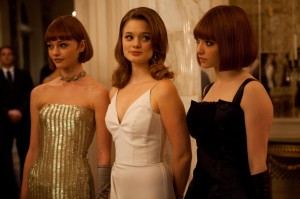
I had a great time watching “In Time”, a sci fi movie about a world that uses time as currency. The movie’s release is full of controversy, as famed science fiction writer Harlan Ellison tried to stop the film’s release citing similarities to his short story “Repent, Harlequin!” Said The Ticktockman. Having now seen the movie and read the short story I don’t feel the similarities were extensive, but more on that later.
The premise as seen in the trailer is pretty straightforward, and what an interesting premise this is. The movie replaces money with seconds, minutes, hours even months and years of people’s lives as people trade off time on their life line for goods and services, working themselves to the bone to be able to make it another day. Extremely topical amongst these times of economic strife and worldwide protests, the movie vilifies the “rich” immortals while making us feel the plight of the working class. All this social commentary is wrapped in this interesting sci fi concept which makes for interesting scenes and concepts, like the idea that poor people from the ghetto are always in a rush, while the rich take their time in everything, because what is there to hurry about if you know you’ll probably live another century or two?
The movie’s strength lies in its earlier scenes as it sets the premise and exposes us to this fascinating world it’s created. Those hoping for more clarification on how the world works shouldn’t get their hopes up. Everyone’s engineered to stop aging at 25, then given a year as currency, and it’s up to them to earn more. The rest of the science isn’t really relevant, just accept it and enjoy the show. At times the utopian paradise shown in the world of the rich reminded me of the 1997 film Gattaca, so I was not surprised to learn both movies were written and directed by Andrew Niccol who did a fantastic job with the look of the movie.
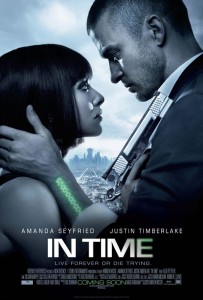
The great looks and unique concept of the movie work towards making a really slick trailer. One particular scene has a man introduce his mother, wife and daughter (MDG…), who all appear to be the same age, all at once. In the film he’s making an introduction to his daughter who he knows very well our protagonist has already met. He follows it up by stating that he believes he’s already met his daughter. Well of course he did, they were all together when they first met, and the way it’s said feels very unnatural, but the reason for this became obvious with a bit of thought. It makes a kick ass line for the trailer, and introducing them any other way would have confused the issue to those only seeing this short line.

At this point if you haven’t seen the film you may want to stop reading to avoid spoilers.
The film’s main villain makes a great statement which perfectly describes why people continue to support such a world of economic disparity which makes sense in this world and in our own. People all want to be immortal, or rich, and so they support a system in which few are able to do so in the hope that they will be so lucky, even though the odds are against them. Poor or middle class people often vote for policies that aren’t in their best interest and this reasoning sums it up pretty well. The idea is that for some to be immortal, many must die, which carries pretty well to the idea that for some to be rich, many must be poor.
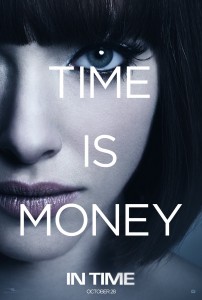
Though the movie makes a fine point of telling us why the world it displays is corrupt and is in need of a revolution, it falls a bit flat on its face with its attempts at presenting a solution. The fix to the disparity between those with a lot of time and those living day by day is a Robin Hood meets Bonnie and Clyde kind of crime spree and redistribution of wealth to the poor. Somehow this ultimately works in throwing off the system enough to turn it on its head, but as characters in the movie mention the system will likely settle again after a certain amount of time, and we’re given no reason to believe this is not the case. This solution offers no worthwhile suggestion as to resolutions to real world problems of social disparity, unless Andrew Niccol is really suggesting we start robbing banks and throwing the money into the slums.

Perhaps I was too wrapped up in the sci fi concept but I would have preferred to see a practical solution to the issue such as everyone stopping to age at 25, but then dying after 50 years, with wealth replaced with some other thing. Of course this only deals with the problems of mortality, and does nothing to deal with the problem of class separation based on wealth, which is really what the movie is about. The concept I’m suggesting is nothing short of communism if we’re to follow the analogy.

The cast did a great job. It must be the dream of every movie studio to have their movie have a convenient plot device which forces the age of its characters to top out at 25. Though Cillian Murphy, the seasoned cop referred to as a Timekeeper, should feel fortunate that at the old age of 35 he’s still allowed to be in this film, most of the cast is around 30, young and pretty, with the women being a bit younger than the men, but isn’t that just typical of Hollywood? The youngest 25 year old is 21 year old Alex Pettyfer, star of I Am Number Four, while the oldest 25 year old is 36 year old Johnny Galecki of Roseanne and the Big Bang Theory.
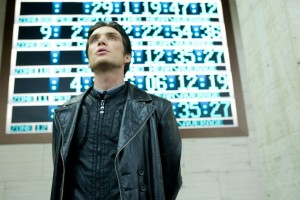
Now… what about all this controversy? In 1965 Harlan Ellison wrote “Repent, Harlequin!” Said the Ticktockman, and he thinks “In Time” is a rip off of his story. He tried to get the film’s release stopped, but finally settled for a credit on the film. The similarities are so striking that movie critic Richard Roeper was apparently under the impression that the film was based on the short story after seeing an advanced screening. I question how this is possible having now seen the film and read the story. While some basic similarities related to a dystopian future where people are controlled through time exist, the specifics vary wildly, and similarities are mostly superficial based on very high level ideas. In the short story time is not even used as a currency, which really is the shtick of this film. The short story is about control but more specific to the importance of being timely, not about controlling people through poverty. It is more about the perfection of order than anything else. Time is removed from people’s lives for being late, not for buying a cup of coffee and it’s not given as payment for the daily grind at the factory.
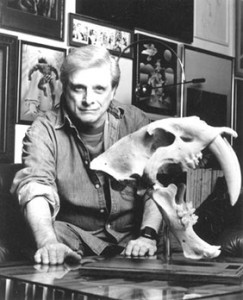
I enjoyed this film thoroughly, but the whole time I was a bit jaded thinking in the back of my head that maybe part of the experience was not deserved as it was ripped off from another work, but further investigation has shown me that this film is indeed an original story of its own, and while passing thematic similarities may exist, the same can be said for almost any story ever told. “In Time” is no more derivative of Ellison’s short story than that story is of 1984 or than The Terminator is derivative of some old Outer Limits episodes. Oh wait…

“In Time” is a great film despite some flaws. It will make you think but isn’t subtle about doing so. I recommend any fan of science fiction, political commentary or attractive 25 year olds check it out.



 PS3
PS3
 Famicom Dojo
Famicom Dojo KEEP PLAYING
KEEP PLAYING KEEP PLAYING: Rewind
KEEP PLAYING: Rewind Powet Toys
Powet Toys Powetcast
Powetcast Hitchhiker's Guide POWETcast
Hitchhiker's Guide POWETcast




